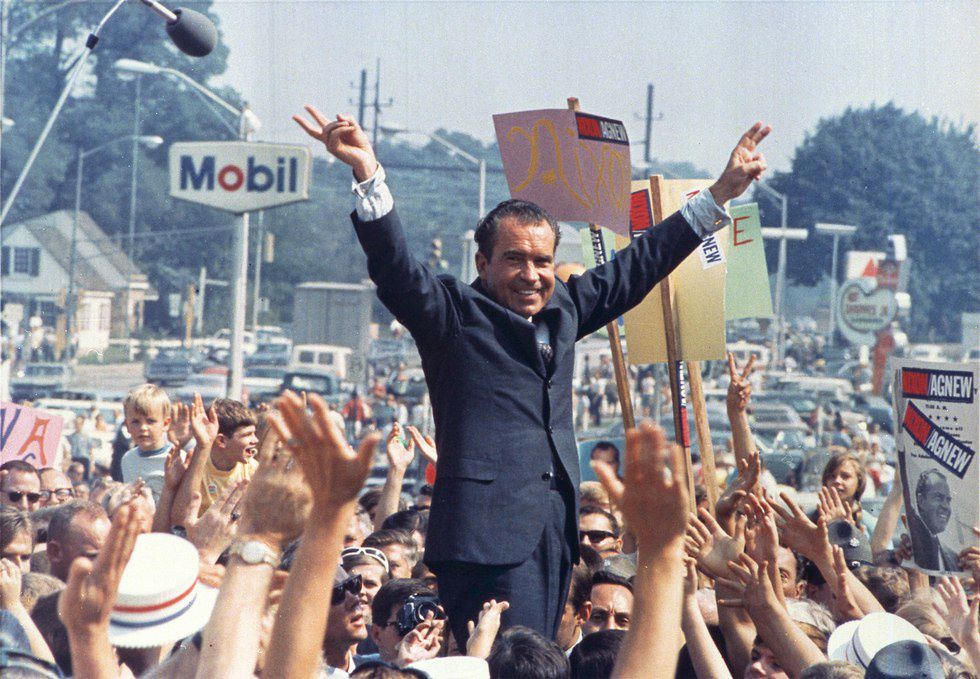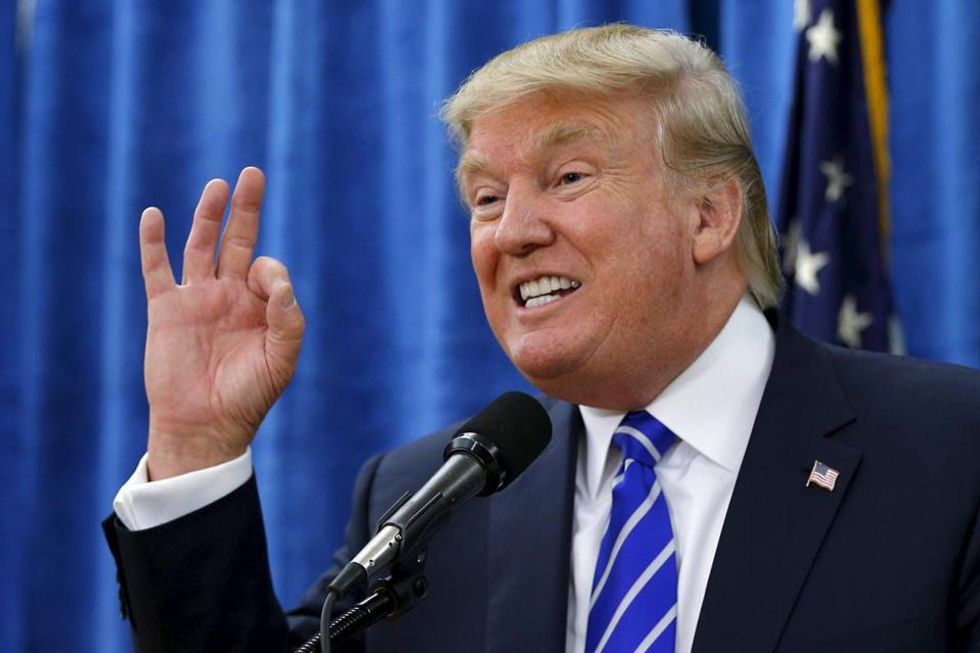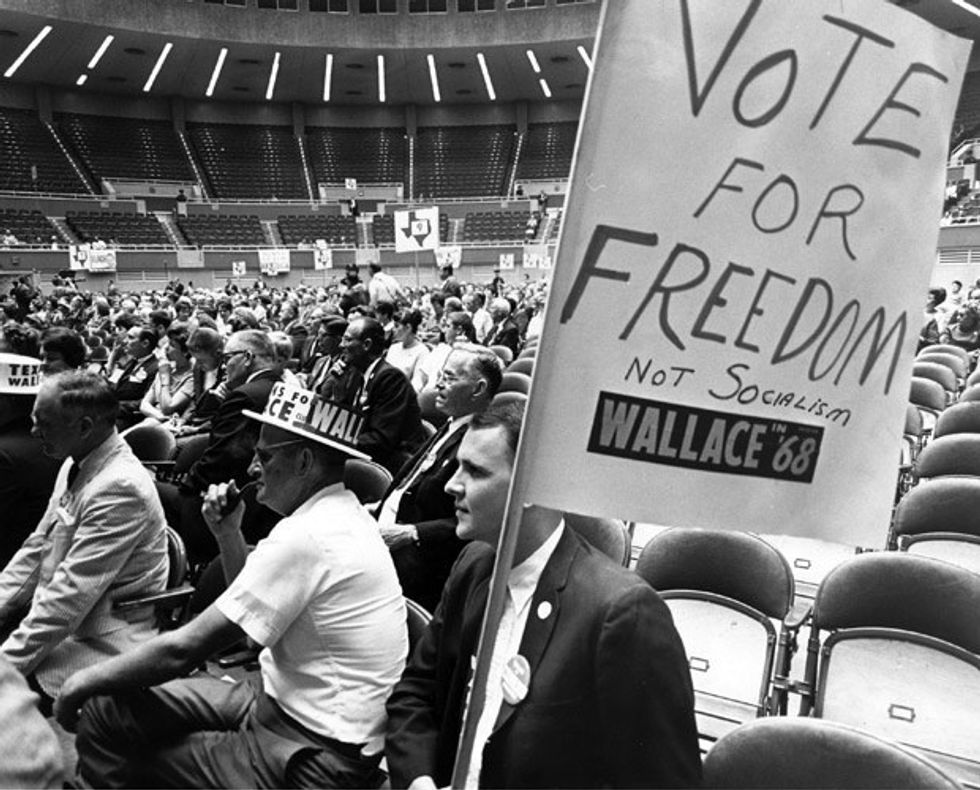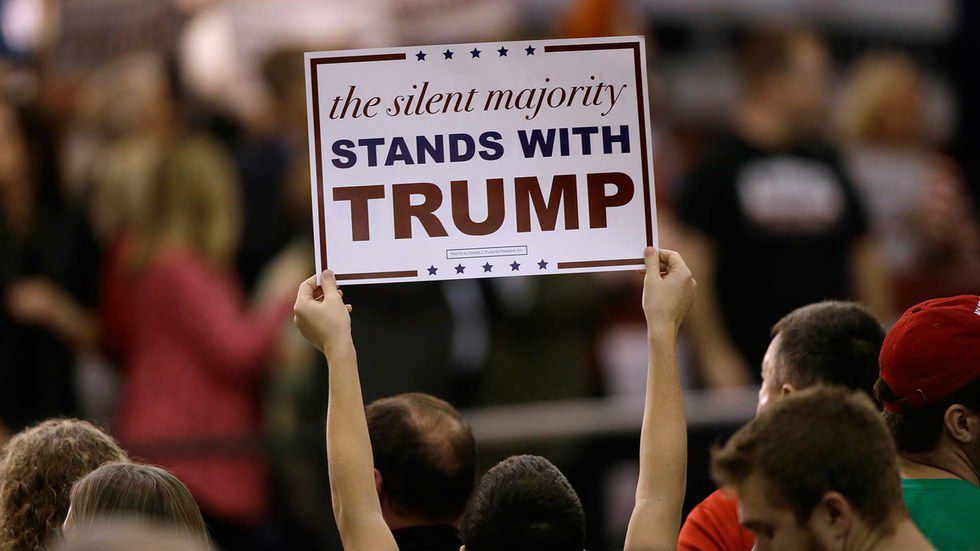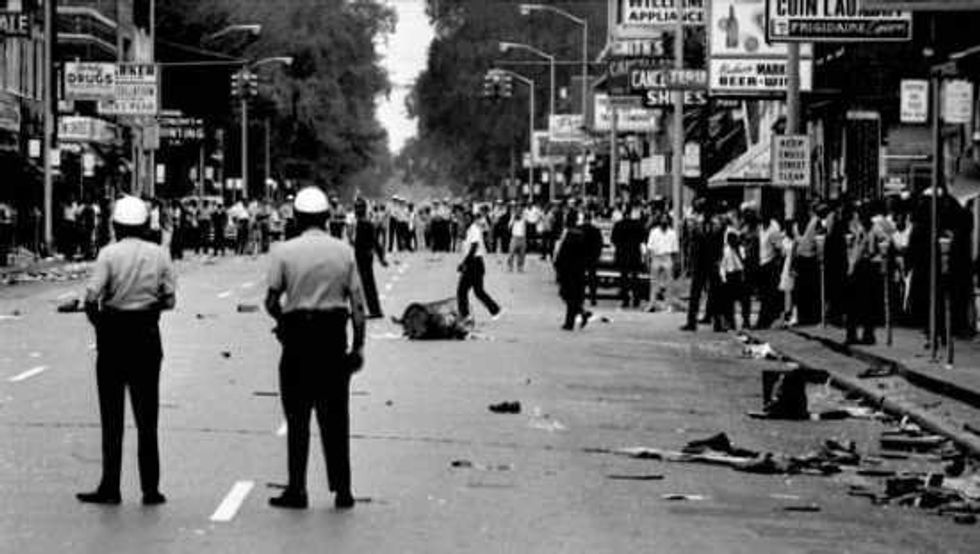Whether it is intentional or not, history tends to repeat itself. Politicians tend to draw from specific cornerstones of American history when making the case for their campaigns or their platforms. The courage of our Founding Fathers during the fight for our independence, the skills of Lincoln as he strove to unite a divided nation, or the bravery displayed by the Greatest Generation’s fight overseas are all common talking points. Democrats may draw comparisons to FDR or JFK’s legacy, while Republicans harken back to days under Reagan. Occasionally, candidates may draw from darker times, and when those dark times are drawn from, it may not be as evident. The similarities to bleak aspects of our history may be only seen when reading between the lines.
The presidential election of 1968 saw many low points in the history of our Republic. The assassination of Sen. Robert Kennedy, the brutality used on protesters at the Democratic National Convention, all the while a seemingly endless war drudged on in the background, unpopular with both sides of the aisle. Tensions between races rose as the aftermath of integration policies led to more interactions between black America and white America. Just as at every point in human history, demagogues arose to exploit the fears and worries of the people. The campaigns of Republican nominee Richard Nixon and Independent candidate Governor George Wallace were based upon the more macabre notions of the electorate. Obviously Richard Nixon was more nuanced with his approach to race issues and government than Wallace, but both gained support from similar demographics. The stump speeches and debates of 1968 have long past, but their influences can still be seen today.
Donald Trump’s campaign parallels that of Nixon and Wallace in ‘68 in many ways. Governor Wallace frequently railed against “Big Government” and Richard Nixon despised the inefficiency he saw first hand in the federal government. Both of these positions, seemingly innocent on a surface level, strike a different tone once further analyzed.
Wallace pushed for States’ Rights. A major part of that was the right for states to continue policies of segregation. He claimed to want a smaller federal government, but what he said and what he meant were two different things. Despite wanting to curtail the power of government in his stump speeches, his platform told a different story. Expansion of different government benefits were included in his platform, next to his policies on segregation. Supporters of him, many being disillusioned Democrats, wanted more government, as long as it benefited them. They hated the idea of government benefits in the form of welfare or help to African American communities, but were just fine when they were the one benefiting from the “Welfare State.” Out of all of the candidates who ran in 1968, Wallace’s platform called for the greatest expansion of government. Hypocritical, considering his opposition to “Big Government.”
Donald Trump, too has gone on record saying that the government is now too big. Mr. Trump says that he wants a smaller government, but his policies tell a different story. The building of an enormous wall across the border of Mexico, mass deportations, expansion of the military budget, surveillance of certain religious groups, and many other policies wouldn’t necessarily fit under the “small government” tent. How could government be smaller under a Trump administration if so many of his policies would involve more spending? It can’t. When visiting cities like Flint, Michigan, who have been ravaged by austerity measures and efforts to reduce government spending, he says that he’ll fix their communities. How can he fix these communities without expanding the size and role of government? He can’t. Just like George Wallace in 1968, Trump’s rhetoric does not match his policies.
It would be easy to point out the similarities between the race baiting of Wallace and Trump, but much of what Trump has promoted behind the podium is more akin to the words and actions of Richard Nixon. Nixon was never as bold as Wallace when it came to race, but the key to understanding his strategy is to read between the lines. Nixon talked of a “silent majority” of Americans standing up. When pressed, he explained the silent majority to be Americans not vocal about their support for the Vietnam War, but political scientists throughout the years have looked deeper. The “Silent Majority” acted as a dog whistle to many disenfranchised voters who felt the government was too concerned about helping African Americans as opposed to the white working class. Nixon never said publicly that black people were abusing the welfare system, but many potential supporters could draw conclusions based on the rhetoric of his campaign.
Signs that read “The Silent Majority Stands With Trump” adorn many Trump rallies. The tactics of 1968 are still in use today as Trump uses dog whistle after dog whistle to reap in more voters. Seldom coming out directly, (besides the occasional “Mexicans are rapists” rhetoric), Trump has built up a strong support base with his Nixonian tactics. Whether he is discussing illegal immigrants, terrorists, or former KKK leader David Duke, Trump seems to always be doublespeaking. There seems to be double-entendre in the air when he previously debated on whether President Obama was a real American. When he says controversial things, he may walk them back, but never totally disavows them; leaving a lot to the imagination for many Americans.
The year 1968 was a very tumultuous year that saw crime and conflict. White, suburban America was beginning to come into contact more often with the black community than in years previous. Backlash from integration policies was rampant in many white, working class Americans. Looking for someone to blame for things going on in their own lives, minorities became an easy scapegoat. At a time of national chaos and and disorder, Wallace and Nixon both preached of restoring “law & order.” Playing on the fears many white Americans had of crime running rampant in the streets, both Wallace and Nixon respectively claimed to be the only candidate who could restore order in the nation. When there seemed to by riots and robbery running amuck in city and suburbia alike, that made sense to many Americans.
At the 2016 Republican National Convention, Donald Trump proclaimed himself to be the “law & order candidate.” Seeing many of the stories covered in the media when it comes to crime and race, it is eerily similar to 1968. Yes, crime has statistically been going down for the past decades, but media coverage of crimes have not. Often times now, a police shooting receives national headlines and riots are treated to 24 hour coverage. Based upon what the see and read in the news, many Americans fear that we are living in a time of chaos. Donald Trump has been preying on that fear in his words and actions. Much like Nixon and Wallace’s calls for law & order in 1968, Donald Trump is promising to resolve issues and be tough on crime in much of the same manner.
A White House aide to President Bush in 2004 was quoted as saying that, “it’s never stopped being 1968.” The election of that year was pivotal for all of the wrong reasons. A divided Democratic Party, unable to unite itself in time for November, a Republican Party that smothered the last breathes of the moderate wing of the party, cementing the right wing’s control of the party, and an independent candidate who played upon the fears of the people were all cornerstones of the election. When we look back upon our nation’s history, it's important to strive to replicate the highlights of the great democratic experiment, but say, “never again” to the darker aspects of our history




